
Khasab: The Fjord of Arabia
Nestled in the northernmost part of Oman, Khasab is often referred to as the 'Norway of Arabia' due to its stunning fjord-like inlets and rugged coastal scenery. This picturesque town is the capital of the Musandam Peninsula and offers a unique blend of natural beauty, historical intrigue, and warm Omani hospitality. One of the main attractions in Khasab is its breathtaking fjords, known locally as 'khors'. These dramatic landscapes can be best experienced on a traditional dhow cruise, where you can marvel at the towering cliffs, hidden coves, and crystal-clear waters. Dolphins often accompany these boats, adding a magical touch to your journey. For history enthusiasts, the 17th-century Khasab Castle is a must-visit. This well-preserved fortification provides a glimpse into the region's past and offers panoramic views of the surrounding area. The castle's museum showcases artifacts and exhibits that tell the story of Khasab's cultural heritage. Outdoor adventurers will find plenty to do in Khasab. The surrounding mountains and wadis (valleys) are perfect for hiking and off-road adventures. The area is also a haven for snorkeling and diving, with pristine coral reefs and abundant marine life waiting to be explored. Despite its remote location, Khasab is accessible via a scenic drive from the UAE or a short flight from Muscat. The town itself is charming, with local markets, friendly residents, and a relaxed atmosphere that makes it an ideal getaway from the hustle and bustle of city life.
Local tips in Khasab
- Book a dhow cruise in advance to ensure availability, especially during peak tourist seasons.
- Carry local currency (Omani Rial) as not all places accept credit cards.
- Visit the local souk for authentic Omani handicrafts and souvenirs.
- Wear comfortable and modest clothing, especially when visiting religious sites.
- Rent a 4x4 vehicle for exploring the rugged terrain and remote areas.
- Stay hydrated and use sun protection, as the climate can be quite harsh.
Khasab: The Fjord of Arabia
Nestled in the northernmost part of Oman, Khasab is often referred to as the 'Norway of Arabia' due to its stunning fjord-like inlets and rugged coastal scenery. This picturesque town is the capital of the Musandam Peninsula and offers a unique blend of natural beauty, historical intrigue, and warm Omani hospitality. One of the main attractions in Khasab is its breathtaking fjords, known locally as 'khors'. These dramatic landscapes can be best experienced on a traditional dhow cruise, where you can marvel at the towering cliffs, hidden coves, and crystal-clear waters. Dolphins often accompany these boats, adding a magical touch to your journey. For history enthusiasts, the 17th-century Khasab Castle is a must-visit. This well-preserved fortification provides a glimpse into the region's past and offers panoramic views of the surrounding area. The castle's museum showcases artifacts and exhibits that tell the story of Khasab's cultural heritage. Outdoor adventurers will find plenty to do in Khasab. The surrounding mountains and wadis (valleys) are perfect for hiking and off-road adventures. The area is also a haven for snorkeling and diving, with pristine coral reefs and abundant marine life waiting to be explored. Despite its remote location, Khasab is accessible via a scenic drive from the UAE or a short flight from Muscat. The town itself is charming, with local markets, friendly residents, and a relaxed atmosphere that makes it an ideal getaway from the hustle and bustle of city life.
When is the best time to go to Khasab?
Iconic landmarks you can’t miss
Atana Musandam Resort
Experience the beauty of Oman at Atana Musandam Resort, where luxury meets adventure in the heart of Khasab's stunning landscapes.
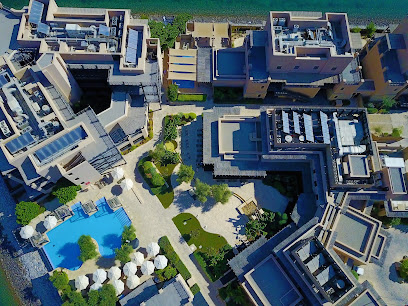
Khasab Castle
Explore the rich history and breathtaking views at Khasab Castle, an ancient fortress in the heart of Oman’s Musandam Peninsula.
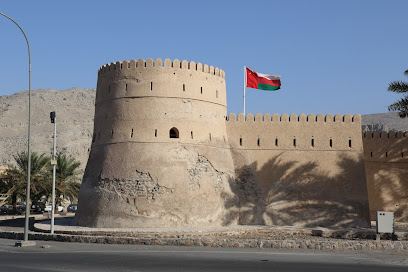
Khor Najd
Explore the breathtaking beauty of Khor Najd, a must-see tourist attraction in Khasab, Oman, featuring stunning cliffs and vibrant marine life.
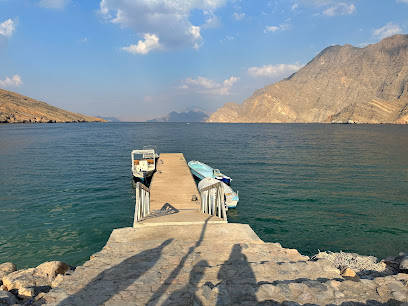
Musandam Oman
Explore Musandam, Oman: A stunning destination of fjords, rich marine life, and vibrant local culture awaits your discovery.
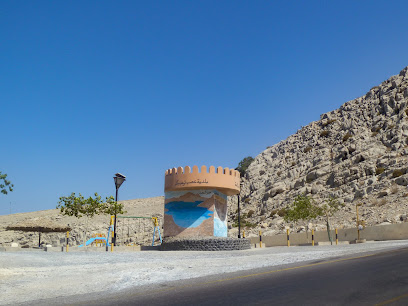
Ahlam Musandam Tours, Khasab
Experience the breathtaking fjords and marine wonders of Khasab with Ahlam Musandam Tours, your gateway to adventure in Oman.
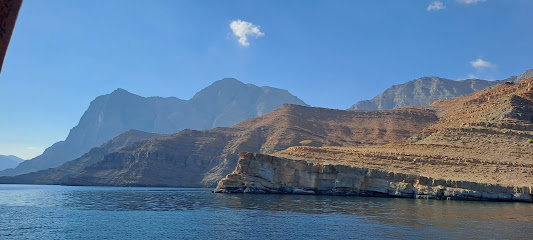
Diwan Al Amir
Discover Diwan Al Amir: Your cozy hotel retreat in Khasab, Oman, blending traditional hospitality with modern comforts amidst stunning fjord landscapes.
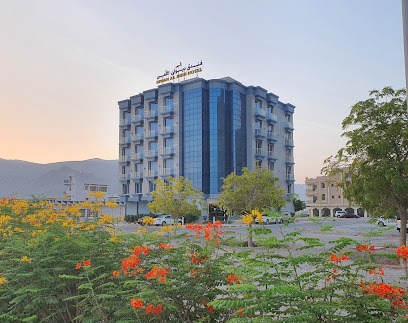
DOLPHIN KHASAB TOURS
Embark on an unforgettable adventure with Dolphin Khasab Tours, where you can explore the stunning Musandam Peninsula and encounter playful dolphins in their natural habitat.
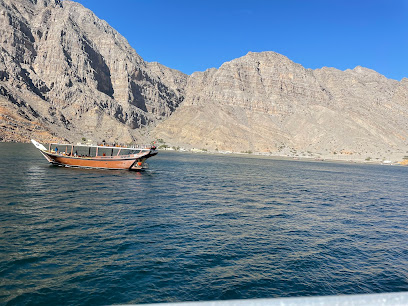
Bukha Fort
Explore Bukha Fort, a historical landmark in Oman that offers a glimpse into the country's rich heritage and stunning coastal views.
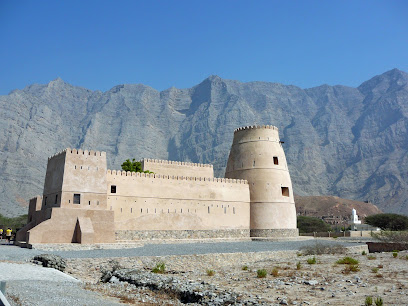
Khasab Sea Tours
Discover the breathtaking fjords and marine life of Oman with Khasab Sea Tours, the ultimate adventure for avid travelers seeking unforgettable experiences.
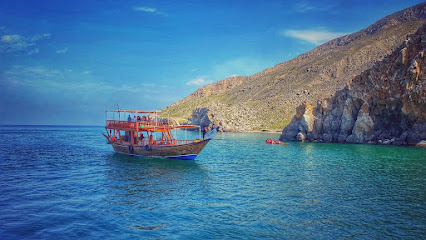
Dhow Khasab Tours
Discover the stunning Musandam coastline with Dhow Khasab Tours, offering unforgettable maritime adventures and cultural experiences.
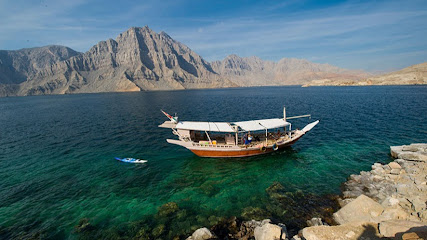
Musandam Discovery Diving
Explore the vibrant underwater world with Musandam Discovery Diving in Khasab, Oman - a premier destination for scuba diving enthusiasts.
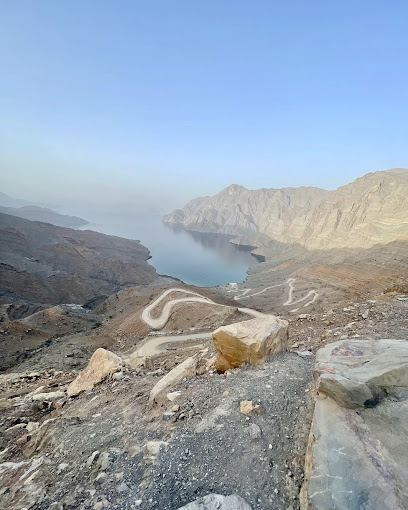
Musandam Sea Adventure Travel and Tourism
Experience the breathtaking beauty and thrill of adventure with Musandam Sea Adventure Travel and Tourism, Oman’s premier tour operator for unforgettable journeys.
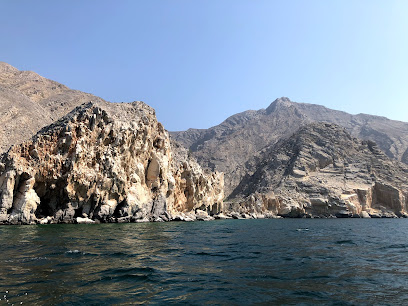
حصن الكمازرة Al kamzra Fort
Discover the historical charm of Al Kamzra Fort in Khasab, Oman, where ancient architecture meets breathtaking coastal views.
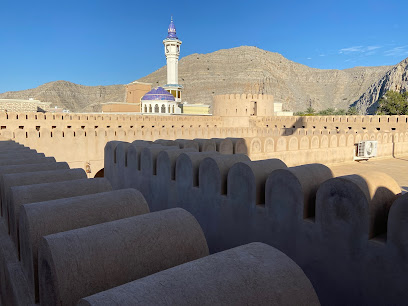
Arabian Musandam Tours
Discover the captivating beauty of Musandam with Arabian Musandam Tours – your gateway to unforgettable adventures in Oman.
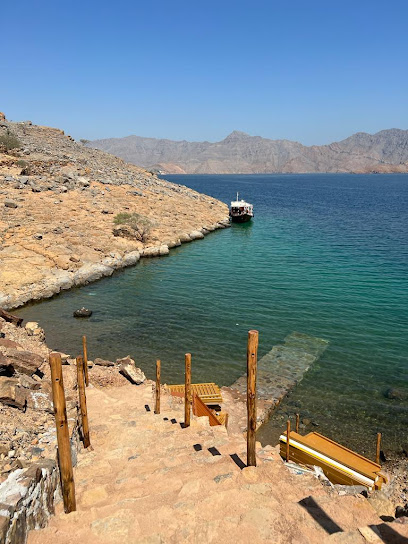
Musandam Dhow Tours, Khasab
Experience the breathtaking fjords and vibrant marine life of Oman with Musandam Dhow Tours in Khasab, a journey through nature's stunning beauty.
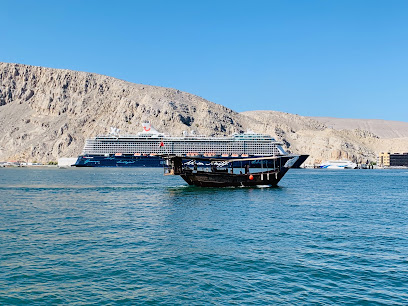
Unmissable attractions to see
Jebel Jais
Discover Jebel Jais, the highest peak in the UAE, offering thrilling adventures and breathtaking views in Ras Al Khaimah.

Dhayah Fort
Explore Dhayah Fort, a historical gem in Ras Al Khaimah, where ancient architecture meets stunning panoramic views, ideal for cultural enthusiasts and nature lovers alike.
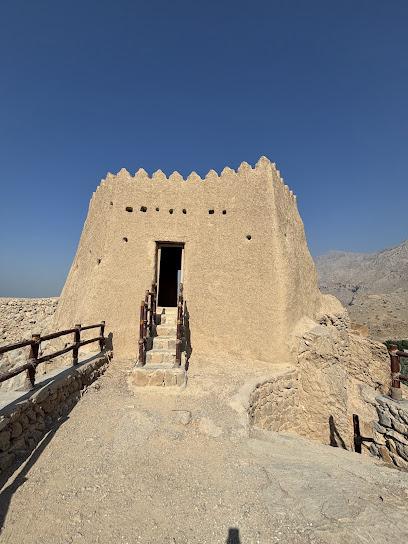
Suwaidi Pearls
Experience the enchanting world of pearls at Suwaidi Pearls in Al Rams, Ras Al Khaimah – a unique blend of heritage and artistry.
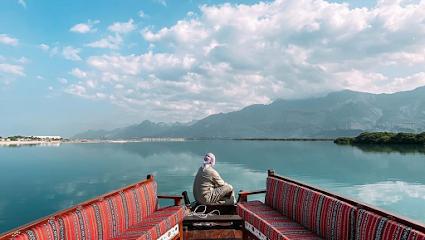
Khasab Castle
Discover Khasab Castle, a historic fortress in Oman offering stunning views, rich culture, and a glimpse into the region's heritage.
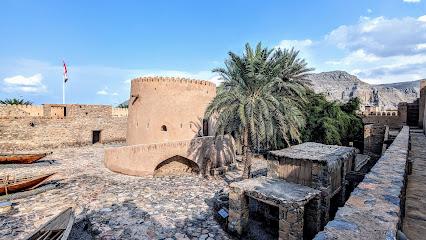
Khor Najd
Explore the breathtaking beauty of Khor Najd, a tranquil natural oasis in Khasab, Oman, perfect for adventure and relaxation amidst stunning landscapes.
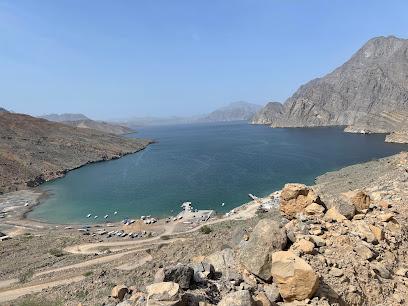
Musandam Oman
Explore the breathtaking fjords and rich cultural heritage of Musandam, Oman, a paradise for nature lovers and adventure seekers alike.
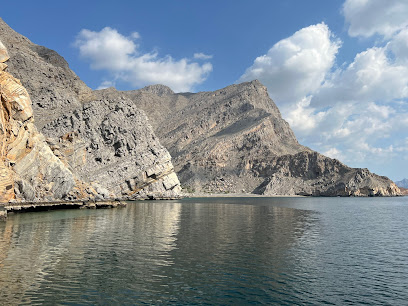
Ras Al Khaimah Jebel Jais Zipline - Extreme Tours
Discover the breathtaking heights and thrilling adventures at Jebel Jais, the UAE's premier destination for extreme sports and stunning mountain views.
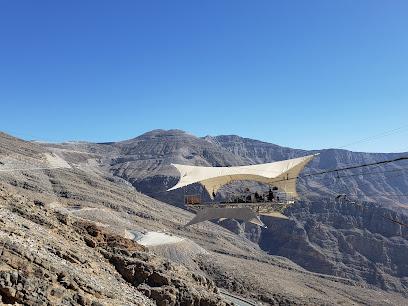
Bassa Beach | شاطئ بصه
Discover the serene beauty of Bassa Beach in Khasab, Oman - a perfect blend of relaxation and adventure along the stunning Gulf of Oman.
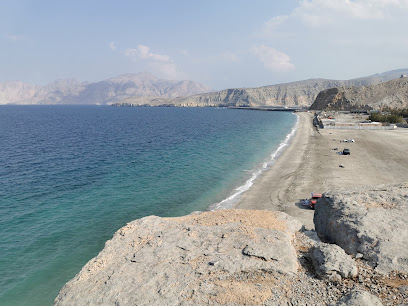
Bukha Fort
Discover Bukha Fort, a historical gem in Oman, where rich heritage meets stunning landscapes for an unforgettable travel experience.
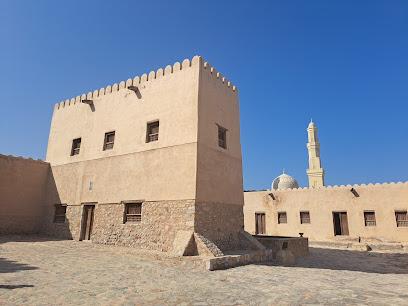
Dhow Khasab Tours
Discover the stunning fjords and vibrant marine life of Musandam, Oman with Dhow Khasab Tours - an unforgettable sailing adventure awaits.

Jais Flight - World's Longest Zipline
Experience the thrill of Jais Flight, the world's longest zipline in Ras Al Khaimah, where adventure meets breathtaking natural beauty.
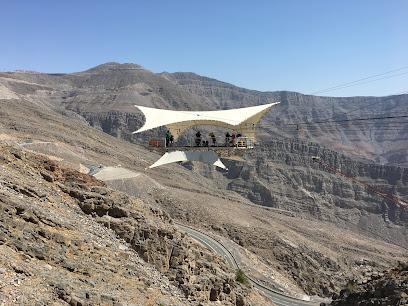
Musandam Sea Adventure Travel and Tourism
Explore the breathtaking beauty of Musandam with unforgettable experiences in nature, culture, and adventure in Oman.
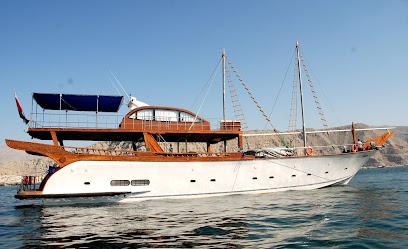
Secret beach
Explore Secret Beach in Ḩarf Ghabī, Oman – a tranquil haven of soft sands and azure waters perfect for relaxation and adventure.
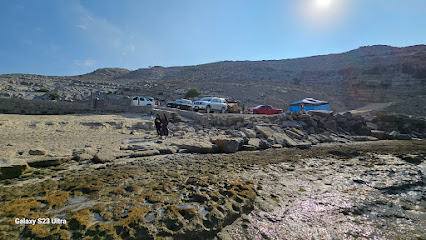
Musandam Zip Line
Discover the exhilarating Musandam Zip Line in Khasab, Oman, where breathtaking views and thrilling adventures await you.
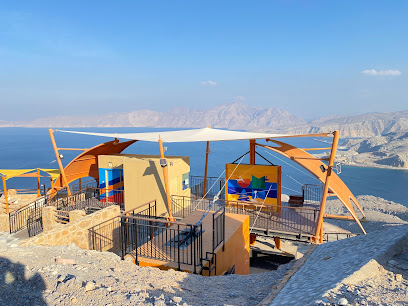
DUNE BEACH
Experience the serene beauty of Dune Beach, a coastal paradise in Khasab, Oman, perfect for relaxation and water adventures.
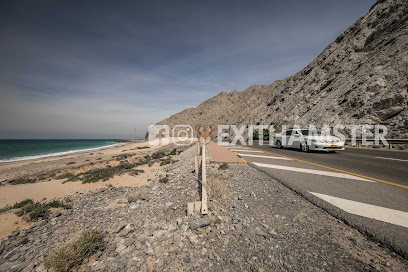
Essential places to dine
Aroos Musandam Restaurant
Discover authentic Omani flavors at Aroos Musandam Restaurant in Khasab – where every meal tells a story.
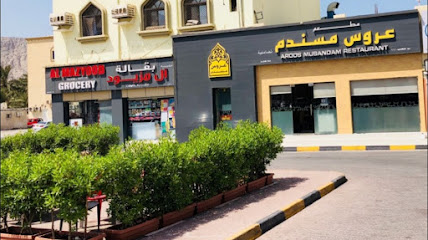
Al Shamalia Grill & Restaurant
Discover authentic Omani flavors at Al Shamalia Grill & Restaurant in Khasab – where every meal tells a story.
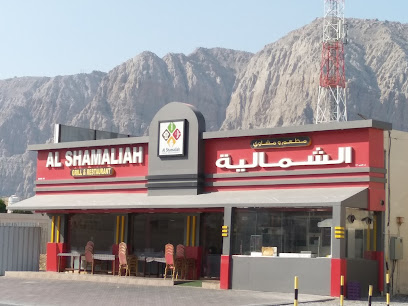
Amjad Restaurant.
Experience the rich flavors of Omani cuisine at Amjad Restaurant in Khasab - where tradition meets taste.
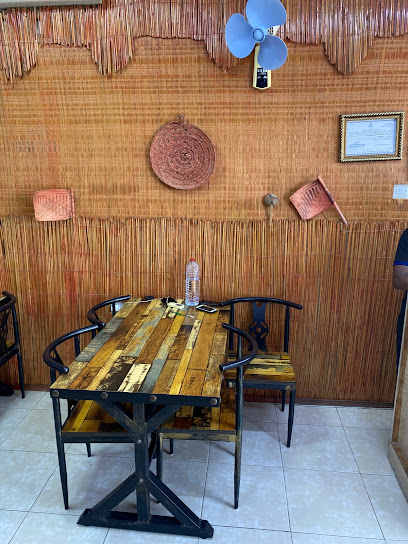
KHASAB CASTLE (Old Name: Wadi Qada Restaurant)
Experience authentic Omani cuisine at Khasab Castle while immersing yourself in the rich cultural heritage of Oman.
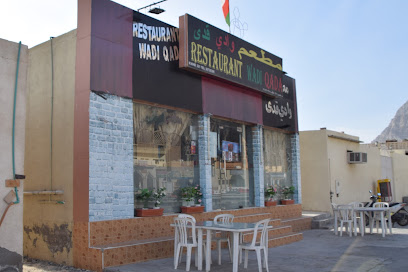
Fanr Musandam Turkish Restaurant
Experience authentic Turkish cuisine at Fanr Musandam Restaurant in Khasab - where flavor meets tradition in a welcoming atmosphere.
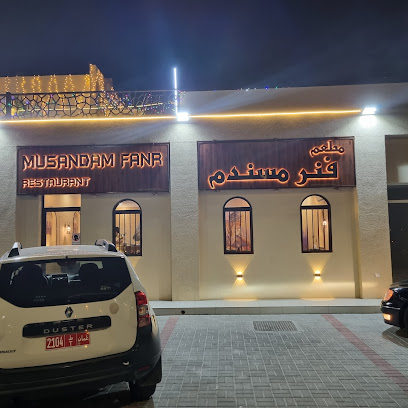
Sada musandam cafeteria
Discover delightful fast food options at Sada Musandam Cafeteria in Khasab—where local tastes meet international favorites.
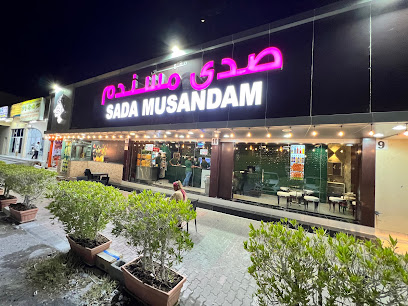
Yemen Village Restaurant
Experience the rich and diverse flavors of authentic Yemeni cuisine at Yemen Village Restaurant in Khasab.
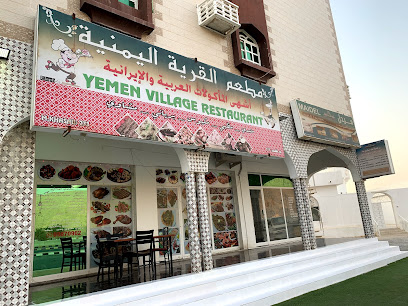
Bassa Beach Restaurant
Experience the authentic tastes of Oman at Bassa Beach Restaurant in Khasab - where culinary excellence meets stunning ocean views.
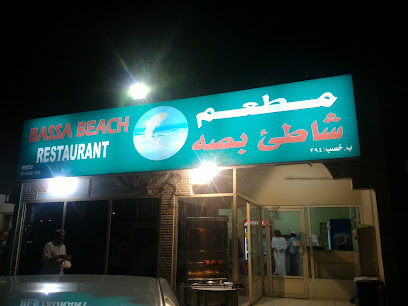
Dhabi Al Yemen Restaurant
Discover authentic Yemeni cuisine at Dhabi Al Yemen Restaurant in Khasab - a must-visit for food enthusiasts seeking unique flavors.
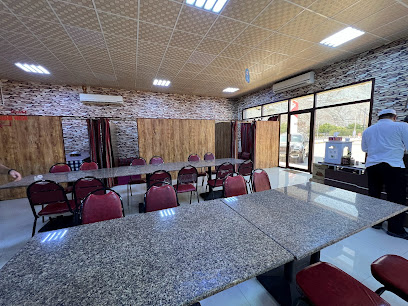
Khasab Coffee Shop
Discover the authentic flavors of Oman at Khasab Coffee Shop, where local traditions meet warm hospitality in every cup.
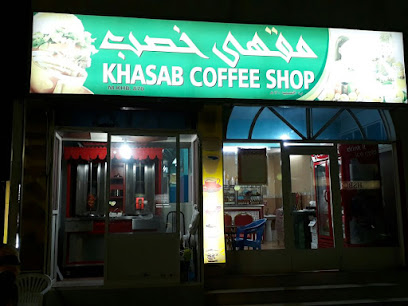
Pakistani Restaurant
Experience authentic Pakistani cuisine in Khasab with flavorful dishes that celebrate rich culinary traditions.
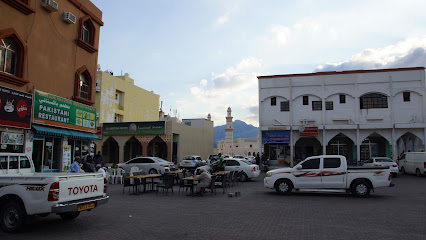
Lezzetli Burgers
Discover gourmet burgers like never before at Lezzetli Burgers in Khasab – where flavor meets passion.
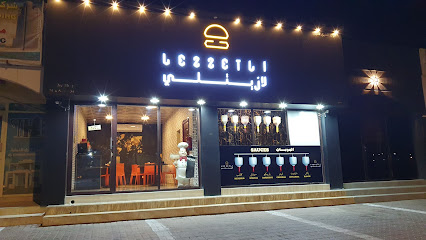
Al Asdaf Restaurant
Experience authentic Omani cuisine at Al Asdaf Restaurant in Khasab - where tradition meets taste.
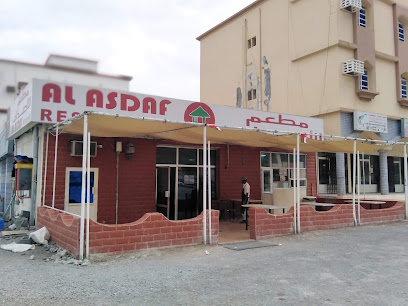
MAZAHBI AL YEMAN
Experience the rich flavors of Yemen at Mazahbi Al Yeman in Khasab – where authentic dishes meet warm hospitality.
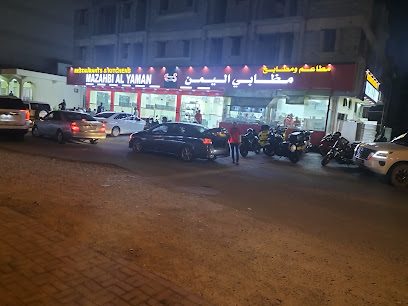
MURTFAT AL HAJER AL GHARBI TRADING & CONT.CO. ( MUSTHAFA HOTEL)
Discover the flavors of Oman at Musthafa Hotel in Khasab – where tradition meets taste in a delightful dining experience.
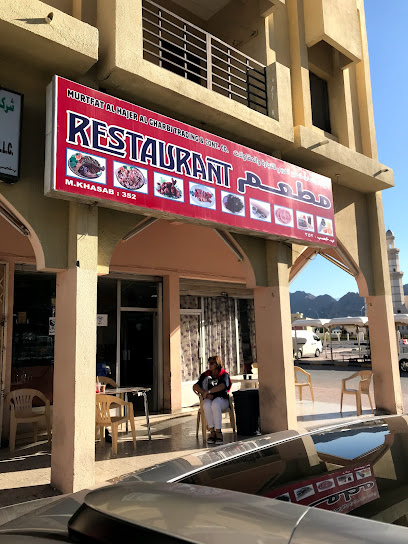
Markets, malls and hidden boutiques
LuLu Hypermarket - Khasab
Explore a world of shopping at LuLu Hypermarket in Khasab, where local culture meets international variety in an unforgettable shopping experience.
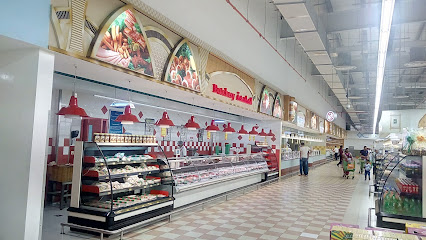
Zad Al Madina Supermarket
Explore the heart of Khasab at Zad Al Madina Supermarket, where local flavors and vibrant products await every visitor.
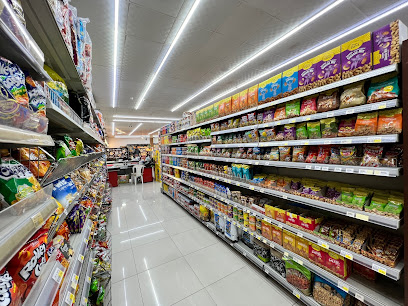
Musandam Almasya
Discover shopping, dining, and entertainment at Musandam Almasya, Khasab's premier shopping mall for tourists and locals alike.
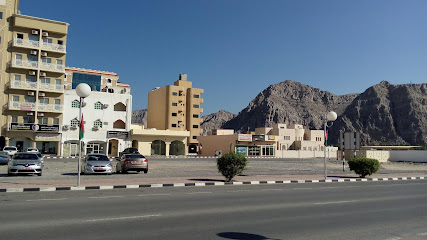
Bin Khammas Grocery Shop
Experience the vibrant local culture of Khasab at Bin Khammas Grocery Shop, where traditional flavors and everyday essentials await.
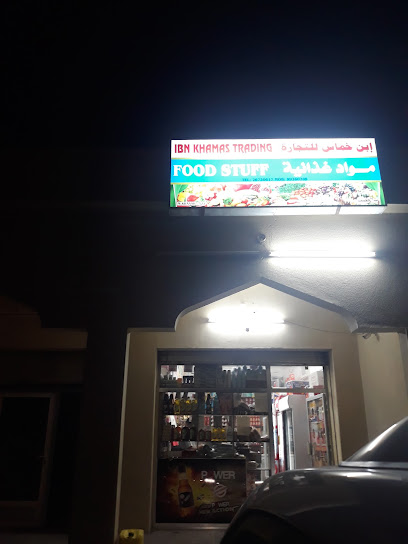
Hilal Musandam
Discover the best of Omani fashion at Hilal Musandam, where tradition meets contemporary style in the heart of Khasab.
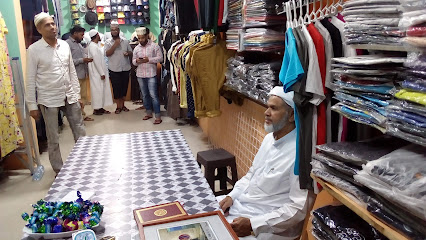
Zaree khasab
Discover the charm of Omani culture at Zaree Khasab, where handcrafted gifts and souvenirs await every traveler.
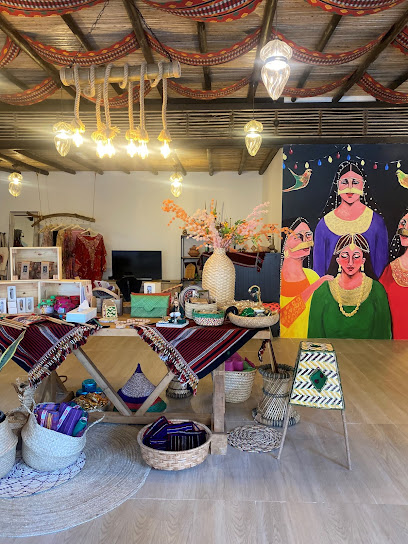
MUSANDAM MOBILES
Explore the vibrant Musandam Mobiles in Khasab for all your mobile needs, ensuring you stay connected on your Omani adventure.
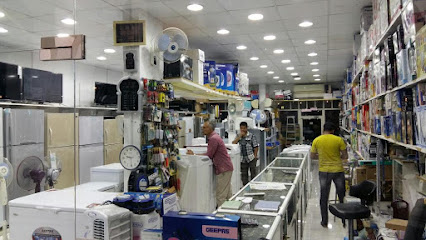
Zaree Khasab Souvenirs Shop
Explore the vibrant culture of Oman at Zaree Khasab Souvenirs Shop, where unique handicrafts and authentic gifts await every traveler.
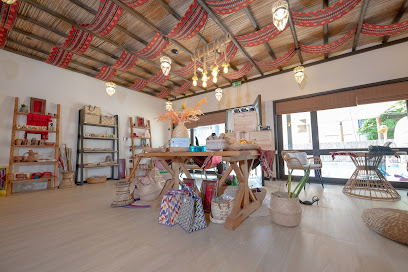
Khaleejmokhi Trading
Explore Khaleejmokhi Trading in Khasab for an unforgettable shopping experience combined with authentic Omani culture and cuisine.
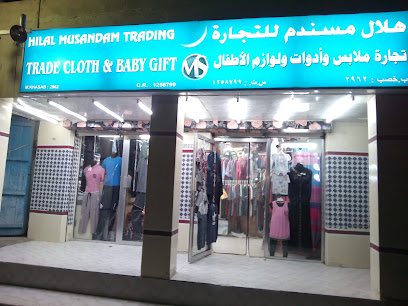
رؤوس الجبال للعسل والنحل
Explore the rich flavors of Omani honey at رؤوس الجبال للعسل والنحل in Khasab, a store dedicated to honey and apiculture enthusiasts.
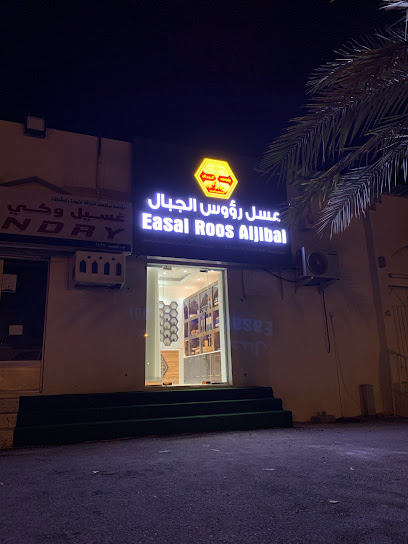
Marsa Khasab trading
Discover the vibrant clothing and unique local attire at Marsa Khasab Trading, a must-visit shopping destination in Khasab, Oman.
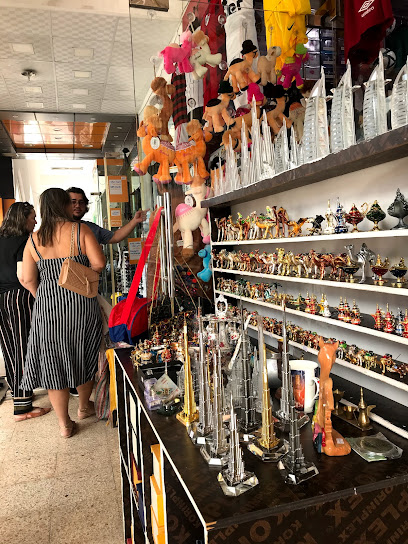
مركز هدايا المدينة للتسوق
Explore unique Omani home goods at مركز هدايا المدينة للتسوق in Khasab, a perfect stop for souvenirs and household treasures.
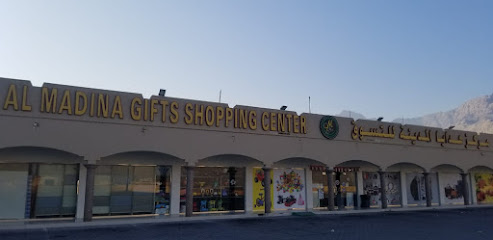
Alaa Eldin International Projects
Experience a unique blend of cannabis and gourmet flavors at Alaa Eldin International Projects in Khasab, Oman.
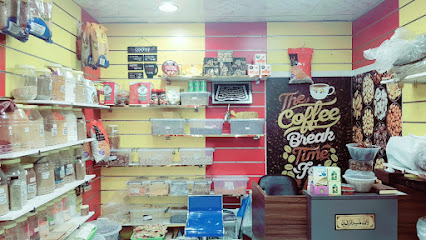
Musandam Heritage Village
Explore the rich cultural heritage of Oman at Musandam Heritage Village, a unique gift shop offering authentic handicrafts and local treasures.
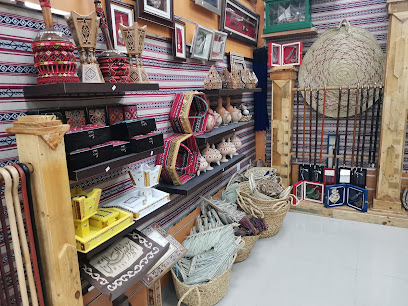
Lulu Roundbot
Discover the bustling Lulu Roundbot Shopping Mall in Khasab, Oman—where shopping meets culture in a vibrant atmosphere.
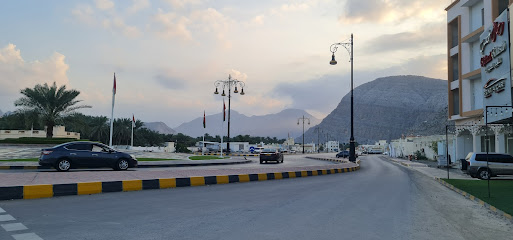
Essential bars & hidden hideouts
Atana Musandam Resort
Experience luxury and adventure at Atana Musandam Resort, a stunning getaway surrounded by the natural beauty of Khasab.
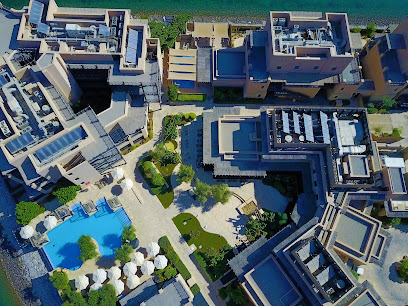
Aroos Musandam Restaurant
Experience authentic Omani flavors at Aroos Musandam Restaurant, a top dining spot in Khasab, renowned for its warm service and delightful cuisine.
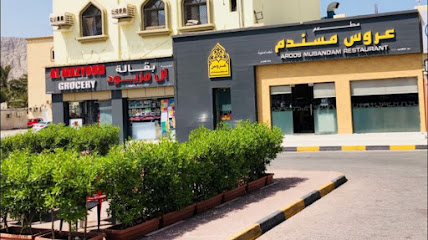
Al Shamalia Grill & Restaurant
Discover the authentic taste of Oman at Al Shamalia Grill & Restaurant in Khasab, where delicious flavors and warm hospitality await.
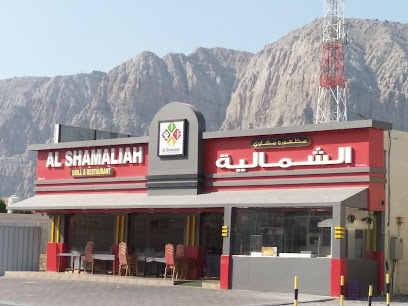
Diwan Al Amir
Discover the charm of Khasab at Diwan Al Amir, where comfort meets Omani hospitality amidst stunning landscapes.
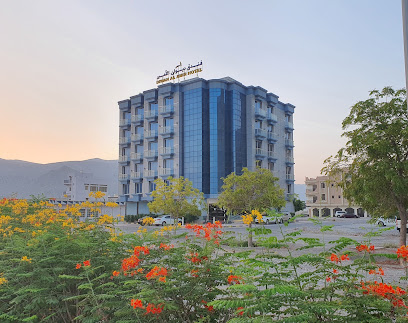
Amjad Restaurant.
Experience the rich flavors of Omani cuisine at Amjad Restaurant in Khasab, where local ingredients meet traditional cooking.
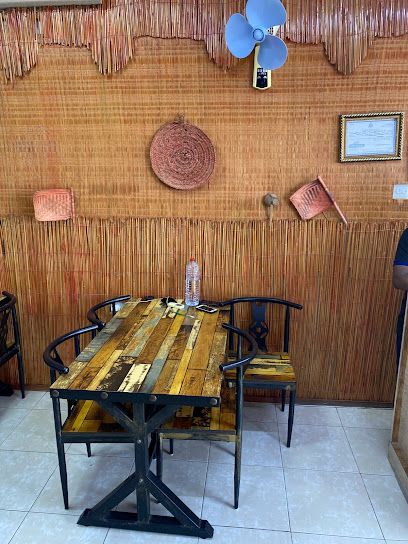
KHASAB CASTLE (Old Name: Wadi Qada Restaurant)
Khasab Castle: A Culinary Journey Through Omani Heritage in the Heart of Khasab.
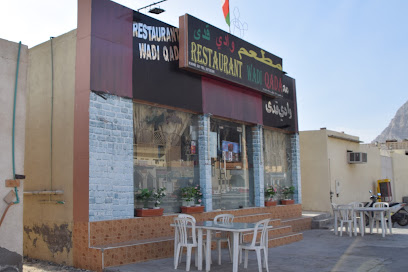
Fanr Musandam Turkish Restaurant
Discover the authentic taste of Turkish cuisine at Fanr Musandam Turkish Restaurant in Khasab, where every meal is a celebration of flavors.
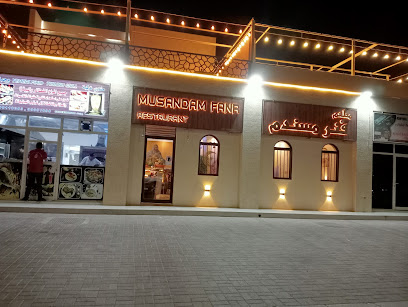
Dhabi Al Yemen Restaurant
Experience the vibrant flavors of Yemen at Dhabi Al Yemen Restaurant, a culinary delight in Khasab, Oman, with authentic dishes and warm hospitality.
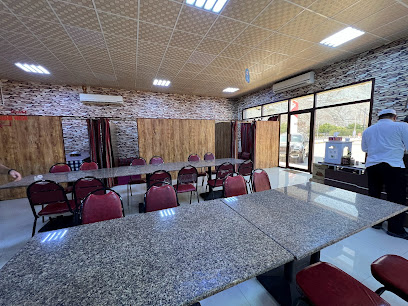
Lezzetli Burgers
Discover the ultimate burger experience at Lezzetli Burgers in Khasab, where flavors come alive in a unique culinary setting.
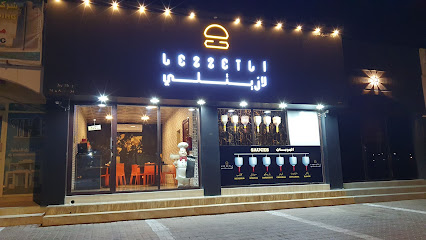
START COFFEE
Discover Khasab's hidden gem, Start Coffee, where rich flavors and a cozy atmosphere await every coffee lover.
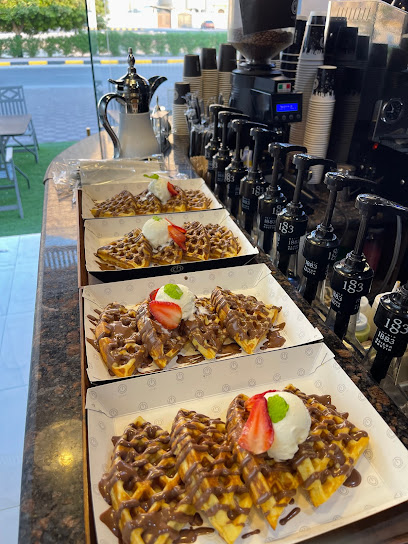
Darts Bar, Atana Hotel
Experience relaxation at Darts Bar in Atana Hotel, Khasab, where cozy ambiance meets stunning views and diverse beverage selections.
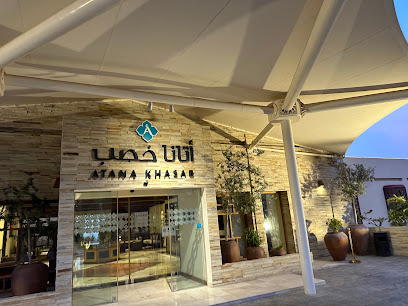
لىالى مسندم مطعم باكستاني MUSANDAM NIGHT Pakistani
Discover the flavors of Pakistan at Musandam Night, a vibrant restaurant in Khasab, renowned for its authentic dishes and warm hospitality.
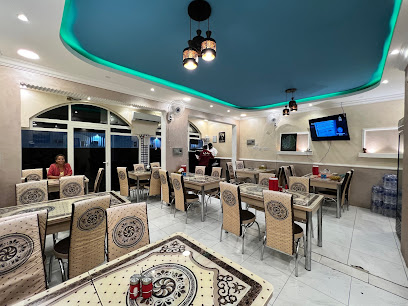
Musandam Restaurant
Discover the flavors of Oman at Musandam Restaurant, where fresh seafood meets warm hospitality in Khasab.
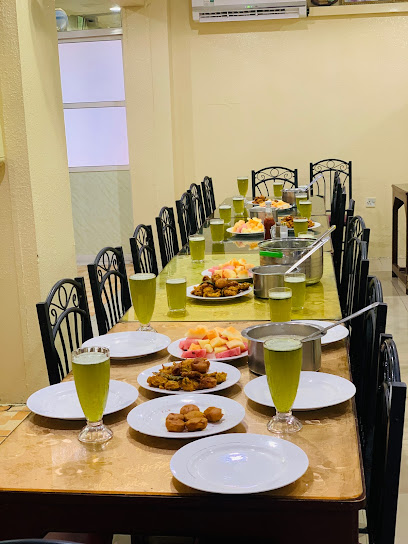
Al Mawra Restaurant
Experience the best of Omani cuisine at Al Mawra Restaurant in Khasab, where tradition meets flavor in every dish.
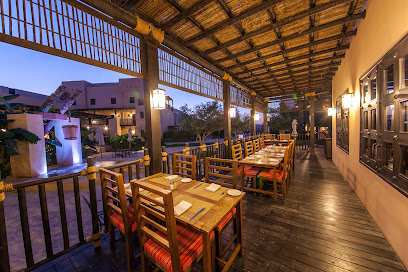
Local Phrases
-
- Helloمرحبا
[marhaban] - Goodbyeوداعا
[wadaeana] - Yesنعم
[naam] - Noلا
[laa] - Please/You're welcomeمن فضلك
[min fadlik] - Thank youشكرا
[shukran] - Excuse me/Sorryعذرا
[aathirana] - How are you?كيف حالك؟
[kayfa haluka?] - Fine. And you?بخير. وأنت؟
[bikhayr. wa'ant?] - Do you speak English?هل تتحدث الإنجليزية؟
[hal tatahadath al'inglizia?] - I don't understandلا أفهم
[la afham]
- Helloمرحبا
-
- I'd like to see the menu, pleaseأريد أن أرى القائمة، من فضلك
[uridu an ara alqaimah, min fadlik] - I don't eat meatأنا لا آكل اللحوم
[ana la aakul allahum] - Cheers!في صحتك
[fi sahtik] - I would like to pay, pleaseأريد أن أدفع، من فضلك
[uridu an adfae, min fadlik]
- I'd like to see the menu, pleaseأريد أن أرى القائمة، من فضلك
-
- Help!النجدة!
[alnajdah!] - Go away!انصرف!
[ansarif!] - Call the Police!اتصل بالشرطة!
[atassil bialshurta!] - Call a doctor!اتصل بطبيب!
[atassil bataabib!] - I'm lostلقد ضللت الطريق
[laqad dalalt altariq] - I'm illأنا مريض
[ana mareed]
- Help!النجدة!
-
- I'd like to buy...أريد أن أشتري...
[uridu an ashtari...] - I'm just lookingأنا فقط أتفرج
[ana faqat atafaraj] - How much is it?بكم هذا؟
[bikam hadha?] - That's too expensiveهذا غالي جدا
[hadha ghali jiddan] - Can you lower the price?هل يمكنك خفض السعر؟
[hal yumkinuka khafd alsiar?]
- I'd like to buy...أريد أن أشتري...
-
- What time is it?ما الوقت؟
[ma alwaqt?] - It's one o'clockالساعة الواحدة
[alsaa'ah alwaahidah] - Half past (10)النصف بعد (10)
[alnusf baad (10)] - Morningالصباح
[alsabah] - Afternoonبعد الظهر
[baad althuhr] - Eveningالمساء
[almasa'] - Yesterdayأمس
[ams] - Todayاليوم
[alyawm] - Tomorrowغدا
[ghadan] - 1واحد
[wahid] - 2اثنان
[ithnan] - 3ثلاثة
[thalatha] - 4أربعة
[arba'ah] - 5خمسة
[khamsah] - 6ستة
[sittah] - 7سبعة
[sab'ah] - 8ثمانية
[thamania] - 9تسعة
[tisa'ah] - 10عشرة
[asharah]
- What time is it?ما الوقت؟
-
- Where's a/the...?أين...؟
[ayna...?] - What's the address?ما هو العنوان؟
[ma huwa al'unnwan?] - Can you show me (on the map)?هل يمكنك أن تريني (على الخريطة)؟
[hal yumkinuka an tureen (ala alkhariata)?] - When's the next (bus)?متى يأتي الحافلة التالية؟
[mata yaati alhafilat altaliat?] - A ticket (to ....)تذكرة (إلى...)
[tazkirat (ila...)]
- Where's a/the...?أين...؟
History of Khasab
-
Khasab's strategic location along the Strait of Hormuz has made it a crucial maritime hub for centuries. Archaeological findings indicate that the area was a focal point for ancient trade routes, connecting civilizations and facilitating the exchange of goods, cultures, and ideas.
-
In the early 16th century, Portuguese explorers arrived in Khasab and recognized its strategic importance. They constructed a fortress to control the maritime traffic through the Strait of Hormuz. The Khasab Fort, built during this period, still stands today as a testament to the Portuguese influence in the region.
-
The Omani Empire reclaimed Khasab from Portuguese control in the late 17th century. They restored and expanded the Khasab Fort, turning it into a significant defensive and administrative center. This period marked the beginning of Khasab's integration into the Omani Sultanate.
-
Khasab's history as a maritime hub has resulted in a rich cultural tapestry. The city has seen a blend of influences from Persian, Portuguese, and Omani civilizations. This cultural fusion is evident in the local architecture, cuisine, and traditional practices.
-
In the 20th century, Khasab underwent significant modernization under the reign of Sultan Qaboos bin Said. Infrastructure improvements, including the construction of roads and the development of the port, facilitated trade and tourism, transforming Khasab into a vibrant city while preserving its historical heritage.
-
Khasab is renowned for its traditional dhow-building industry. These wooden boats have been used for centuries by local fishermen and traders. The dhow remains an iconic symbol of Khasab's maritime heritage, with skilled craftsmen continuing to build and maintain these vessels using age-old techniques.
Khasab Essentials
-
Khasab is located in the Musandam Peninsula of Oman. The nearest international airport is Dubai International Airport (DXB), about 200 kilometers away. From Dubai, you can drive to Khasab, which takes approximately 3-4 hours. Alternatively, you can take a ferry from Muscat to Khasab, which offers a scenic route along the coast. There are also domestic flights from Muscat to Khasab Airport (KHS).
-
Khasab is a small town, and many of its attractions are within walking distance. For longer trips, local taxis are available and relatively inexpensive. Renting a car is a convenient option for exploring the surrounding areas, such as the fjords and mountains. There are also boat tours and dhow cruises that offer a unique way to see the coastline and marine life.
-
The official currency in Oman is the Omani Rial (OMR). Credit cards are accepted in most hotels, restaurants, and shops in Khasab, but it is advisable to carry some cash for smaller establishments and local markets. ATMs are available in the town, but it is wise to withdraw sufficient cash before venturing into more remote areas.
-
Khasab is generally a safe destination for tourists. However, like any travel destination, it is advisable to take standard precautions. Avoid walking alone at night in unfamiliar areas and keep an eye on your belongings in crowded places. There are no specific high-crime areas targeting tourists, but it is always best to stay vigilant and aware of your surroundings.
-
In case of emergency, dial 9999 for immediate assistance. The local police station and medical facilities are available in Khasab. It is recommended to have travel insurance that covers medical emergencies. For minor health issues, there are pharmacies in the town where you can purchase over-the-counter medications.
-
Fashion: Do dress modestly, especially when visiting religious sites. Avoid wearing revealing clothing. Religion: Do respect local customs and traditions. Always remove your shoes before entering mosques. Public Transport: Do be respectful and give up your seat to elderly passengers. Don't eat or drink on public transport. Greetings: Do greet people with a handshake. A slight bow of the head is also a sign of respect. Eating & Drinking: Do try local delicacies and accept food offerings graciously. Don't refuse hospitality, as it is considered impolite.
-
To experience Khasab like a local, visit the local markets where you can buy fresh produce and traditional Omani goods. Engage with locals, as they are often friendly and willing to share stories about the town's history and culture. Don't miss visiting the Khasab Castle, which offers insights into the region's history. For a unique experience, take a dhow cruise to explore the stunning fjords and enjoy activities such as snorkeling and dolphin watching.
Trending Landmark in Khasab
-
Atana Musandam Resort
-
Khasab Castle
-
Khor Najd
-
Musandam Oman
-
Ahlam Musandam Tours, Khasab
-
Diwan Al Amir
-
DOLPHIN KHASAB TOURS
-
Bukha Fort
-
Khasab Sea Tours
-
Dhow Khasab Tours
-
Musandam Discovery Diving
-
Musandam Sea Adventure Travel and Tourism
-
حصن الكمازرة Al kamzra Fort
-
Arabian Musandam Tours
-
Musandam Dhow Tours, Khasab
Nearby Cities to Khasab
-
Things To Do in Ras Al Khaimah
-
Things To Do in Dibba Al-Fujairah
-
Things To Do in Khor Fakkan
-
Things To Do in Umm Al Quwain
-
Things To Do in Ajman
-
Things To Do in Fujairah
-
Things To Do in Sharjah
-
Things To Do in Dubai
-
Things To Do in Sohar
-
Things To Do in Al Ain
-
Things To Do in Abu Dhabi
-
Things To Do in Rustaq
-
Things To Do in Ibri
-
Things To Do in Muscat
-
Things To Do in Bahla








